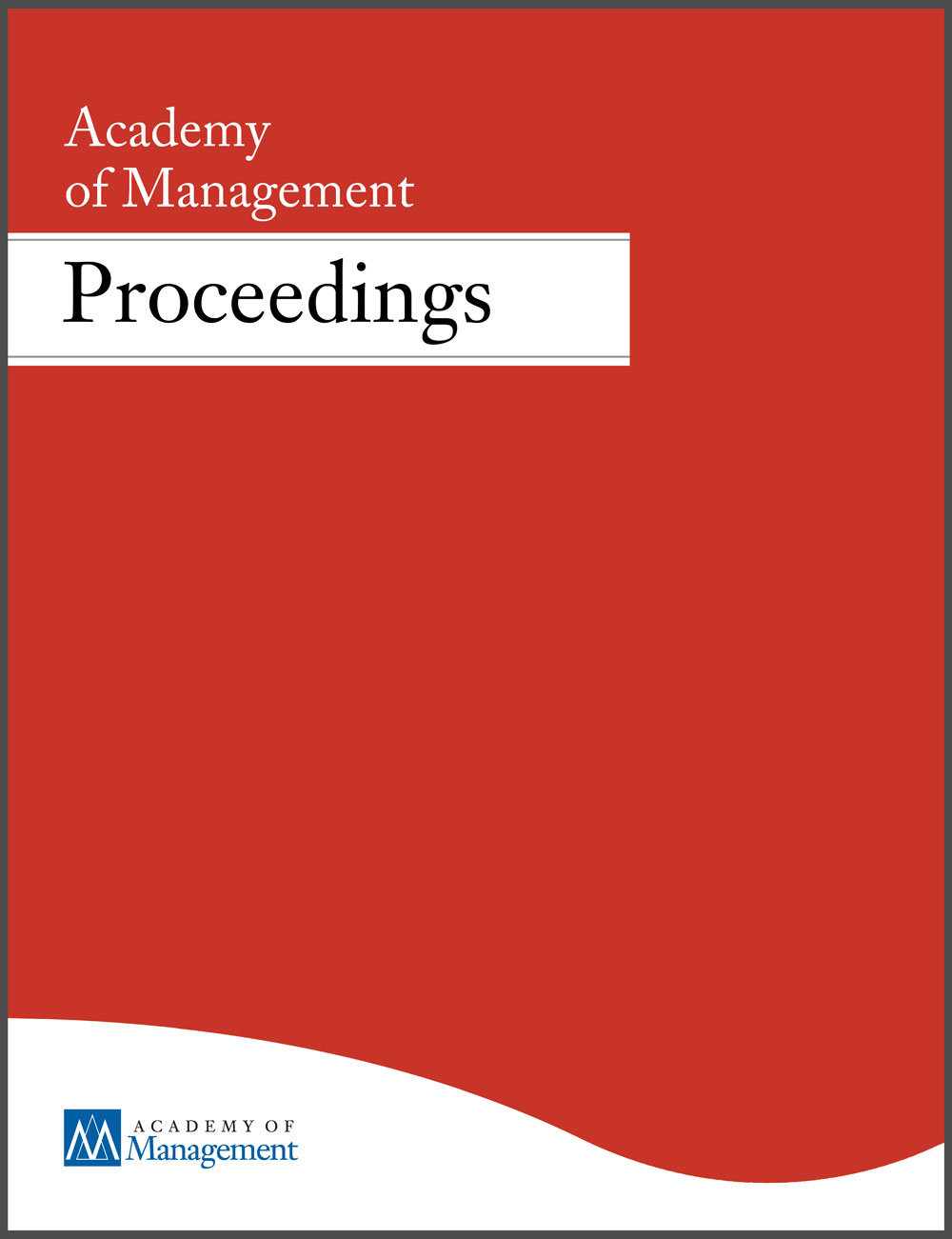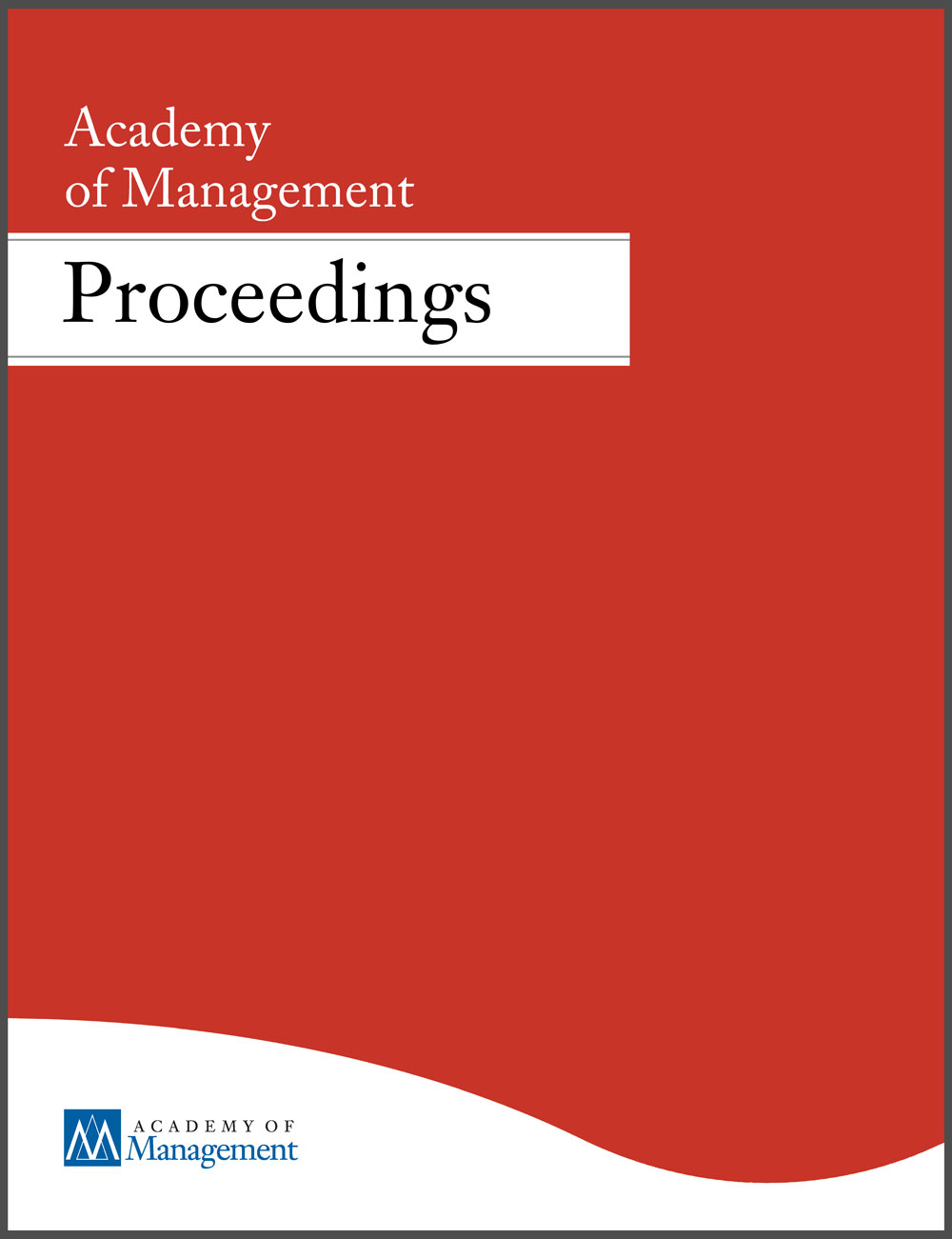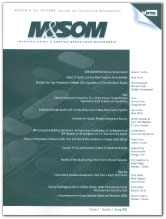Academic articles
Practitioner articles
Working papers
Books
Book chapters
Case studies
Other publications
Subject(s)
Marketing
Keyword(s)
confidence, correction, credibility, persuasion, advertising
At times, consumers are motivated to reduce the influence of a product recommendation on their judgments. Based on previous research, it is unclear whether this correction process will increase or decrease consumers’ confidence in their judgments. We find that source credibility moderates the effect of correction on confidence: correction decreases confidence when a product recommendation comes from a high credibility source but increases confidence when the same message comes from a low credibility source. As a result, correction increases the effectiveness of recommendations from low credibility sources on purchase intentions. Notably, this “confidence via correction” effect is further moderated by elaboration, such that the effect is attenuated for high elaboration consumers. Our results have implications for understanding consumers’ reactions to persuasive messages and for both marketing practitioners and consumer protection agencies using correction cues to influence message persuasiveness.
With permission of Elsevier
Volume
24
Journal Pages
34–48
Subject(s)
Finance, accounting and corporate governance
Keyword(s)
accounting, financial statements, SME, financial communication
JEL Code(s)
M410
Secondary Title
Rechnungslegung, Prüfung und Unternehmensbewertung
Pages
567–585
ISBN
9783791032825
Subject(s)
Economics, politics and business environment
Keyword(s)
reference-dependent utility, gain-loss utility, loss aversion, sticky prices, sales, supermarket pricing
It is widely known that loss aversion leads individuals to dislike risk, and as has been argued by many researchers, in many instances this creates an incentive for firms to shield consumers and employees against economic risks. Complementing previous research, we show that consumer loss aversion can also have the opposite effect: it can lead a firm to optimally introduce risk into an otherwise deterministic environment. We consider a profit-maximizing monopolist selling to a loss-averse consumer, where (following Koszegi and Rabin (2006)) we assume that the consumer's reference point is her recent rational expectations about the purchase. We establish that for any degree of consumer loss aversion, the monopolist's optimal price distribution consists of low and variable "sale" prices and a high and atomic "regular" price. Realizing that she will buy at the sale prices and hence that she will purchase with positive probability, the consumer chooses to avoid the painful uncertainty in whether she will get the product by buying also at the regular price. This pricing pattern is consistent with several recently documented facts regarding retailer pricing. We show that market power is crucial for this result: when firms compete ex ante for consumers, they choose deterministic prices.
This is an open access article.
Volume
9
Journal Pages
217–251
Subject(s)
Human resources management/organizational behavior
Keyword(s)
Non-routine situations, team adaptiveness, team interaction pattern
Previous research suggest that teams cycle through distinct phases of action (task activity) and transition (planning and interpretation of feedback and information) during routine work situations, and that during non-routine situations, effective teams also engage in reactive adjustments to plans. Other work suggests that during non-routine situations, the interaction patterns of effective teams differ significantly from less-effective teams. The first body of work does not consider contexts requiring teams to engage in constant task activity largely absent the reflective “downtime” of transition phases, while the second body of work does not examine team interaction patterns across both routine and non-routine situations. However, high-workload dynamic contexts demanding constant task activity and involving routine and non-routine situations are real and consequential, and present teams with critical challenges. Thus, given such a dynamic context, in this paper we examine: (1) the timing of in-process planning by teams; (2) the effect of this planning on subsequent team performance; and (3) the simultaneous and reactive differences of team interaction pattern characteristics across routine and non-routine situations. We find evidence that teams engage in significantly more in-process planning behavior during routine situations versus non-routine situations, that the relationship between this in-process planning and subsequent team performance is curvilinear, and that different interaction pattern characteristics are related to team performance in routine and non-routine situations.
With permission of the Academy of Management
Volume
2014
ISSN (Online)
2151-6561
ISSN (Print)
0065-0668
Subject(s)
Technology, R&D management
Keyword(s)
Broadcast search, innovation, prize competition
Prize competitions, an alternative to patents and grants for motivating potential inventors, have gained renewed interest in recent years. We analyze targeted prizes that are formalized into standards that solutions can be evaluated against ex ante, where the organizer of the prize competition stipulates a problem to be solved and distributes it to a pool of potential contest participants. To gain insight into how such competitions have been employed and functioned, we reviewed all papers on the topic published on Thomson ISI's database and reviewed how prize competitions have been used since the 1600s. Although many recent prize competitions have been privately sponsored, governments were early to use competitions to motivate inventors. We synthesize the literature using a novel process framework that captures the key challenges of prize competitions: (1) Define, (2) Broadcast, (3) Attract, and (4) Select. This DBAS framework allows us to advance theory about dimensions of prize competitions on which earlier literature is silent.
With permission of the Academy of Management
Volume
2014
ISSN (Online)
2151-6561
ISSN (Print)
0065-0668
Subject(s)
Product and operations management
Keyword(s)
Waiting time competition; benchmark effect; loss aversion; queues; game theory
We consider a duopoly where firms compete on waiting times in the presence of an industry benchmark. The demand captured by a firm depends on the gap between the firm's offer and the benchmark. We refer to the benchmark effect as the impact of this gap on demand. The formation of the benchmark is endogenous and depends on both firms' choices. When the benchmark is equal to the shorter of the two offered delays, we characterize the unique Pareto optimal Nash equilibrium. Our analysis reveals a stickiness effect in which firms equate their delays at the equilibrium when the benchmark effect is sufficiently strong. When the benchmark corresponds to a weighted average of the two offered delays, we show the existence of a pure Nash equilibrium. In this case, we reveal a reversal effect, in which the market leader, i.e., the firm that offers a shorter delay, becomes the follower when the benchmark effect is sufficiently strong. In both cases, we show that customers' equilibrium waiting times are shorter with the benchmark effect than without it. Our models also capture customers' loss aversion, which, in our setting, states that demand is more sensitive to the gap between the delay and the benchmark when the delay is longer than the benchmark (loss) than when it is shorter (gain). We characterize the impact of this loss aversion on the equilibrium in both settings. Finally, we show numerically that the stickiness and reversal effects still exist when firms also compete on price.
© 2014 INFORMS
Volume
16
Journal Pages
119–132
ISSN (Online)
1526–5498
ISSN (Print)
1523-4614
Subject(s)
Economics, politics and business environment; Management sciences, decision sciences and quantitative methods
Keyword(s)
Fairness, loss domain, ultimatum game, dictator game, reference-dependent preferences, social preferences
JEL Code(s)
D03, D81
We explore the interaction between fairness attitudes and reference dependence both theoretically and experimentally. Our theory of fairness behavior under reference-dependent preferences in the context of ultimatum games, defines fairness in the utility domain and not in the domain of dollar payments. We test our model predictions using a within-subject design with ultimatum and dictator games involving gains and losses of varying amounts. Proposers indicated their offer in gain- and (neatly comparable) loss- games; responders indicated minimum acceptable gain and maximum acceptable loss. We find a significant “generosity effect” in the loss domain: on average, proposers bear the largest share of losses as if anticipating responders’ call for a smaller share. In contrast, reference dependence hardly affects the outcome of dictator games -where responders have no veto right- though we detect a small but significant “compassion effect”, whereby dictators are on average somewhat more generous sharing losses than sharing gains.
View all ESMT Working Papers in the ESMT Working Paper Series here. ESMT Working Papers are also available via RePEc, EconStor, and the German National Library (DNB).
Pages
47
ISSN (Print)
1866–3494
Subject(s)
Strategy and general management
Keyword(s)
open innovation, strategy
Secondary Title
The Oxford handbook of innovation management
Pages
442–461
ISBN
978-0199694945
Subject(s)
Human resources management/organizational behavior
Keyword(s)
Leadership
The case serves as an illustration of organizational behavior when it comes to the issue of silence in organizations. It describes a critical leadership situation that requires speaking up against the orders of a superior in a hierarchical structure – in this case, the armed forces. When the protagonist, a young Israeli officer leading a special-forces platoon, receives an order that would put his platoon in extreme danger, he has to make a decision. The case is not concerned with combat situations, but rather with how to act as a responsible leader. Given the setting of an army unit governed by command and control, the initial case discussion is likely to focus on typical leadership issues, such as motivation and followership. However, the more interesting aspect concerns the dual roles that leaders typically have to fulfill, that is, they may be both leaders and followers. The protagonist of the case is a captain who receives an order from a major that will have consequences for the captain’s platoon. The core issue of the case is the decision to reject the order in question. Participants will discuss why speaking up is an issue in organizations and usually does not occur. The case also allows us to look at situations in high-risk organizations that allow open communication.
The case may be used in a leadership course in MBA programs. It may also be used in executive education to support sessions on both leadership as well as crisis and error management. Apart from the main objective of highlighting the issue of speaking up, executives may also be asked to describe how to lead and motivate individuals beyond using the normal incentive tools (e.g., bonuses and promotions). On the whole, the case may be used to address the following subjects: speaking up, leadership, responsibility, motivation, and followership.
| buy now | buy now | buy now |
Subject(s)
Finance, accounting and corporate governance
Keyword(s)
Single Resolution Mechanism (SRM), Multi-Tier Resolution Fund (MTRF), ESM, financial systems, financial stability
This note proposes a new set-up for the fund backing the Single Resolution Mechanism (SRM). The proposed fund is a Multi-Tier Resolution Fund (MTRF), restricting the joint and several supranational liability to a limited range of losses, bounded by national liability at the upper and the lower end. The layers are, in ascending order: a national fund (first losses), a European fund (second losses), the national budget (third losses), the ESM (fourth losses, as a backup for sovereigns). The system works like a reinsurance scheme, providing clear limits to European-level joint liability, and therefore confining moral hazard. At the same time, it allows for some degree of risk sharing, which is important for financial stability if shocks to the financial system are exogenous (e.g., of a supranational macroeconomic nature). The text has four parts. Section A describes the operation of the Multi-Tier Resolution Fund, assuming the fund capital to be fully paid-in (“Steady State“). Section B deals with the build-up phase of the fund capital (“Build up“). Section C discusses how the proposal deals with the apparent incentive conflicts. The final Section D summarizes open questions which need further thought (“Open Questions“).
Pages
8
ISSN (Print)
1866–4016



